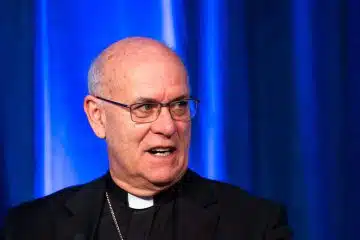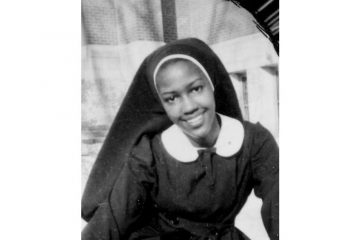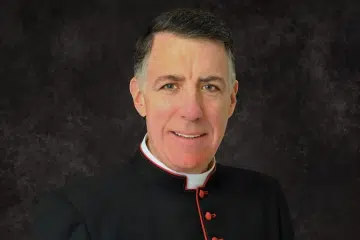Some Clarity on Roe and Dobbs
What is the current U.S. law regarding abortion?
Roe v. Wade (1973), Doe v. Bolton (1973), and especially Planned Parenthood v. Casey (1992), prevent states from restricting abortion prior to viability (the time at which a baby can survive outside the mother’s body). This is generally considered to be at 24 weeks of pregnancy. Currently, states may pass legislation that restricts abortion to no earlier than that approximate time frame, or to allow abortion up until the moment of birth.
Seven states currently allow abortion with little restriction up until birth (Alaska, Colorado, New Hampshire, New Jersey, New Mexico, Oregon, Vermont and the District of Columbia). Some add New York into that category, although its laws are more restrictive than the others listed. On the other end of the spectrum, Texas and Oklahoma have both successfully enacted bans on abortion much earlier than viability because of the unique way the laws are enforced. Other states are trying to enact similar laws that appear poised to stand regardless of whether the current Supreme Court decisions are overturned.
What exactly is currently before the Supreme Court?
Mississippi passed the Gestational Age Act in 2018, which restricts abortion after 15 weeks of gestational age. This restriction is based, to a large extent, on the fact that babies can feel pain by 15 weeks into the pregnancy. Additionally, there is a greatly increased risk of maternal death with abortions later in pregnancy. The lone abortion clinic in Mississippi challenged that law. And that challenge was heard by the U.S. Supreme Court in December of 2021 in Dobbs v. Jackson Women’s Health Organization. What is at stake here is whether Mississippi will be allowed to restrict abortion earlier than Roe and Casey currently allow, and even further, whether Roe and Casey will be overturned all together. This decision is expected to be released no later than the end of June 2022.
What are the possible outcomes of the Dobbs case?
One possible outcome of the Dobbs case is that the Supreme Court will overturn Roe and Casey. A second possibility is that Mississippi’s 15-week ban will be upheld without completely overturning the Court’s previous decisions. The final possibility is that Roe and Casey are upheld and Mississippi’s ban is struck down as unconstitutional.
What happens if Roe and Casey are overturned?
If Roe and Casey are overturned, states will have the freedom to restrict abortion completely, or not. The states mentioned above will continue to have abortion available with little restriction up until birth. At least 26 states have passed or appear poised to pass further restrictions on abortion either at the detection of a heartbeat (typically around 6 weeks), or in several states, at all stages of development with limited exceptions.
What about Ohio and neighboring states?
In 2018, Ohio passed the Heartbeat Bill, restricting abortion after the detection of a heartbeat. This law is currently enjoined by a federal judge and not in effect. If Roe is overturned, Attorney General Yost has already stated that he will immediately request that stay be lifted, and it is believed that the Heartbeat Bill would then become law in Ohio almost immediately.
Further, SB 123 is currently being heard in the Ohio Senate, and would prohibit all abortions with limited exceptions. It is possible this bill could pass sometime this year, but it is highly unlikely this could go into effect by the time the decision is released. In nearby Kentucky, a trigger law is already in place that would effectively ban all abortions with limited exceptions should Roe be overturned. Nothing is currently in place in Indiana, but the current legislative makeup there makes the possibility of further abortion restriction likely.
What if Mississippi’s ban alone is upheld?
If Roe and Casey are not overturned, but Mississippi’s ban is upheld, nothing will change immediately in Ohio, Kentucky or Indiana. In all three of these states, new legislation would have to be introduced restricting abortion to that new 15 week threshold. In all three, it seems likely all three legislative bodies would move to put something like that in place in that scenario.
What if Mississippi’s ban is not upheld?
If Roe and Casey are not overturned and Mississippi’s ban is also struck down, nothing changes. Laws currently in place restricting abortion after 20 weeks would remain in all of the tri-state. It is worthy of mention, however, that there is legislation in the Ohio House modeled after the current Texas law, that would ban abortion even if Roe is not overturned. It is possible that this law could be passed in Ohio even if Roe is not overturned, and abortion could still become illegal in Ohio.
If abortion is restricted in Ohio, will we still need our Pregnancy Care Centers?
Yes, more than ever. Unplanned and unwanted pregnancies will continue to occur across the country, and without the option of abortion, thousands more women will turn to pregnancy care centers for the support they need to raise their babies or place them in loving, adoptive homes. Medical “at home” abortions will likely become more common. More than ever before, we will need to show the world that we continue to truly love the mother and her child by supporting her in her time of need. We encourage you (and everyone at your parish) to learn of the pregnancy care center nearest you, and support their work through donation of your time, talents and treasure. We need to be at the ready to support anyone in a crisis pregnancy with the assistance they need to choose life for their children.
What about women who have had abortions?
The Church continues to reach out to women and men who have been involved in an abortion and find themselves in need of emotional and spiritual support. Project Rachel Ministry offers confidential, compassionate help to women and men after involvement with an abortion. Women and men who have carried guilt and shame for years can find mercy through reconciliation and spiritual direction.
 Bob Wurzelbacher has served as Director of the Office for Respect Life Ministries since January 2017. The office supports initiatives related to life issues such as abortion, euthanasia and capital punishment, as well as ministries of care such as inclusion, bereavement and post-abortion ministry. Bob is a musician and previously served as a music director at parishes in the Cincinnati area. Prior to working for the archdiocese, Bob served in the U.S. Army overseas, and spent five years in temporary vows as a religious brother. In pursuit of three degrees, Bob took at least one course at 14 different colleges and universities. Bob is now married and has two young daughters who keep him busy
Bob Wurzelbacher has served as Director of the Office for Respect Life Ministries since January 2017. The office supports initiatives related to life issues such as abortion, euthanasia and capital punishment, as well as ministries of care such as inclusion, bereavement and post-abortion ministry. Bob is a musician and previously served as a music director at parishes in the Cincinnati area. Prior to working for the archdiocese, Bob served in the U.S. Army overseas, and spent five years in temporary vows as a religious brother. In pursuit of three degrees, Bob took at least one course at 14 different colleges and universities. Bob is now married and has two young daughters who keep him busy













